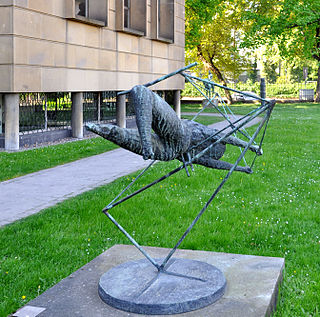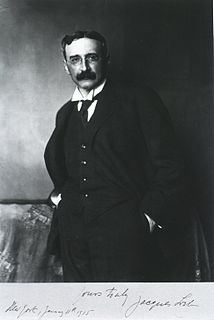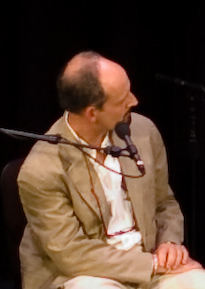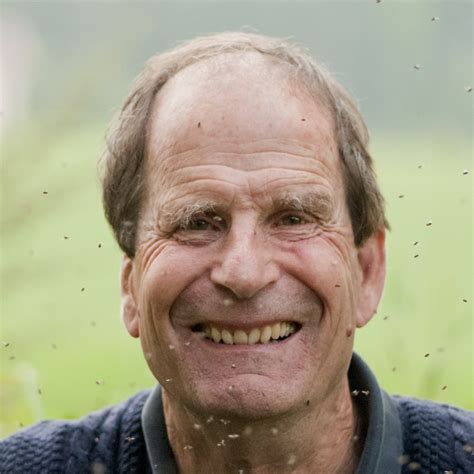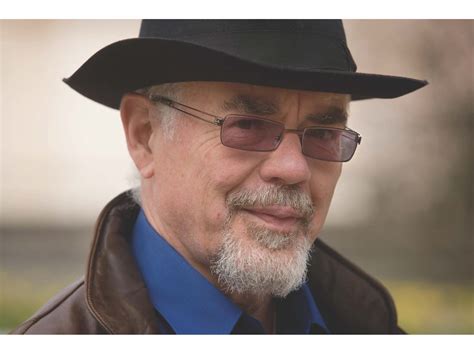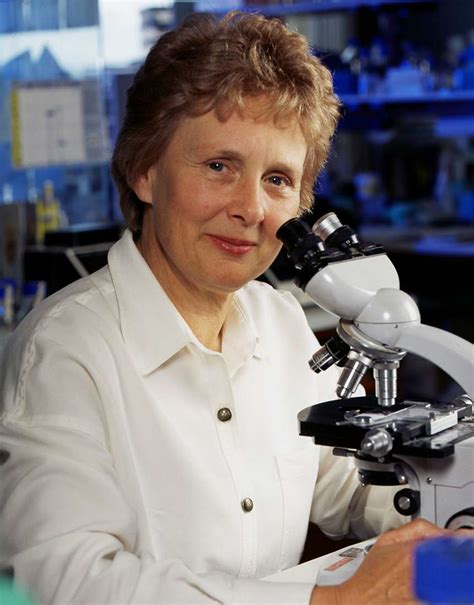A Quote by Rachel Carson
Here and there awareness is growing that man, far from being the overlord of all creation, is himself part of nature, subject to the same cosmic forces that control all other life. Man's future welfare and probably even his survival depend upon his learning to live in harmony, rather than in combat, with these forces.
Related Quotes
I believe that the unity of man as opposed to other living things derives from the fact that man is the conscious life of himself. Man is conscious of himself, of his future, which is
death, of his smallness, of his impotence; he is aware of others as others; man is in nature, subject to its laws even if he transcends it with his thought.
Before modern man can gain control over the forces that now threaten his very existence, he must resume possession of himself. This sets the chief mission for the city of the future: that of creating a visible regional and civic structure, designed to make man at home with his deeper self and his larger world, attached to images of human nature and love.
Reason's biological function is to preserve and promote life and to postpone its extinction as long as possible. Thinking and acting are not contrary to nature; they are, rather, the foremost features of man's nature. The most appropriate description of man as differentiated from nonhuman beings is: a being purposively struggling against the forces adverse to his life.
One of the most revolutionary concepts to grow out of our clinical experience is the growing recognition that innermost core of man's nature - the deepest layers of his personality, the base of his 'animal nature' - is basically socialized, forward-moving, rational and realistic... He is realistically able to control himself, and he is incorrigibly socialized in his desires. There is no beast in man, there is only man in man.
Modern man lives isolated in his artificial environment, not because the artificial is evil as such, but because of his lack of comprehension of the forces which make it work- of the principles which relate his gadgets to the forces of nature, to the universal order. It is not central heating which makes his existence 'unnatural,' but his refusal to take an interest in the principles behind it. By being entirely dependent on science, yet closing his mind to it, he leads the life of an urban barbarian.
There are three kinds of nature in man, as Nicetas Stethatos further explains: the carnal man, who wants to live for his own pleasure, even if it harms others; the natural man, who wants to please both himself and others; and the spiritual man, who wants to please only God, even if it harms himself. The first is lower than human nature, the second is normal, the third is above nature; it is life in Christ.
In philosophical anthropology, ... where the subject is man in his wholeness, the investigator cannot content himself, as in anthropology as an individual science, with considering man as another part of nature and with ignoring the fact that he, the investigator, is himself a man and experiences this humanity in his inner experience in a way that he simply cannot experience any part of nature.
The Great Man's sincerity is of the kind he cannot speak of, is not conscious of: nay, I suppose, he is conscious rather of insincerity; for what man can walk accurately by the law of truth for one day? No, the Great Man does not boast himself sincere, far from that; perhaps does not ask himself if he is so: I would say rather, his sincerity does not depend on himself; he cannot help being sincere!
The life we live today - the environment in which we live - is not one of security - it's one of doubt, one of suspicion, one of absolute tension - we're not a pastoral society any more. We feel around us the pressure of man's inadequacy to control his own development. The time when the great forces of nature, the stones and the rocks, were the gods, is gone.
Man alone, during his brief existence on this earth, is free to examine, to know, to criticize, and to create. In this freedom lies his superiority over the forces that pervade his outward life. He is that unique organism in terms of matter and energy, space and time, which is urged to conscious purpose. Reason is his characteristic and indistinguishing principle. But man is only man -- and free -- when he considers himself as a total being in whom the unmediated whole of feeling and thought is not severed and who impugns any form of atomization as artificial, mischievous, and predatory.
In spite of Death, the mark and seal of the parental control, Man is yet free, during his brief years, to examine, to criticise, to know, and in imagination to create. To him alone, in the world with which he is acquainted, this freedom belongs; and in this lies his superiority to the resistless forces that control his outward life.
What a wee little part of a person's life are his acts and his words! His real life is led in his head, and is known to none but himself. All day long, the mill of his brain is grinding, and his thoughts, not those of other things, are his history. These are his life, and they are not written. Everyday would make a whole book of 80,000 words -- 365 books a year. Biographies are but the clothes and buttons of the man -- the biography of the man himself cannot be written.










